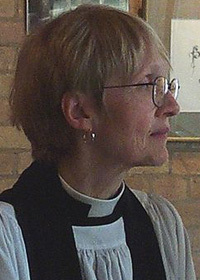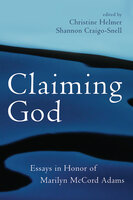
That ultimately set the tone for Medieval Philosophy on this side of the Pond. This pushed Moody’s interests later, well into the 14th century, and had the consequence that the people who where interested in what Moody was interested in started to look more closely and seriously at the later middle ages, finding in 14th century philosophy a veritable goldmine, while it simultaneously became a common practice to develop those interests in the history of science, logic and language in connection with analogous contemporary endeavours. Now, Moody had a different agenda and a different set of thoughts: he pursued his interests in medieval logic, language and science in connection to the contemporary discussions in logic and language – an whatever Aquinas was up to, an emphasis on logic and language wasn’t really that. Various people had slightly different pictures, but it was always as a curve and Aquinas was typically at its peak.

But even so, after Aeterni Patris typically there was still an idea that medieval philosophy had seemingly emerged out of the wreckage of the Roman Empire, grown slowly to a peak with Aquinas, and then began to decay – Gilson, for example, thought that the decay culminated in Descartes. True enough, this picture of medieval philosophy as fundamentally homogenous began to break down when Étienne Gilson and others started to realise that it couldn’t manage to account for roughly a thousand years of philosophical speculations. Thomas Aquinas”, was pivotal in determining a dominant picture of medieval philosophy that had both the kind of uniformity that scholars like Maurice De Wulf ascribed to terms like “scholasticism” and Aquinas as the central figure.

Leo XIII’s Aeterni Patris encyclical (1879), by restoring “Christian Philosophy in Catholic Schools in the spirit of the Angelic Doctor, St. Since the 19th century, the history of the study of medieval philosophy had been almost entirely shaped by quasi-nationalistic and quasi-theological concerns. Having retired for a few years to a ranch in Texas, in 1958 he joined the Department of Philosophy at UCLA there he found a department not only already traditionally strong in logic and language but that was undergoing further changes toward that direction as well – in other words, the perfect fit for Moody’s own research interests.Ībove all, those research interest left a significant imprint on the way we look at medieval philosophy in general and at the history of medieval logic in particular, especially in North America. While teaching at Columbia, he developed an interest in the history of medieval logic and science. Moody obtained his PhD from Columbia in 1936, with a thesis on William of Auvergne’s Treatise De anima. Moody is first and foremost the author of Truth and Consequence in Medieval Logic (1953 1), one of the most influential volumes in the historiography of medieval logic and of medieval philosophy as a whole.Ī Williams College graduate (class 1924), E. But for those who have even a passing interest in the history of logic, E. Professor Moody was one of the the pioneers of Medieval Philosophy in North America and one of the first scholars to approach the study of medieval philosophical theories in their own right, without subordinating them to theological views. This meeting is named after Earnest Addison Moody, a former member of the Philosophy Department and a founding member of the UCLA Centre for Medieval and Renaissance Studies – which are jointly sponsoring the event.

From the 2nd to the 4th of March, the University of California Los Angeles will be hosting the yearly Moody Workshop in Medieval Philosophy.


 0 kommentar(er)
0 kommentar(er)
